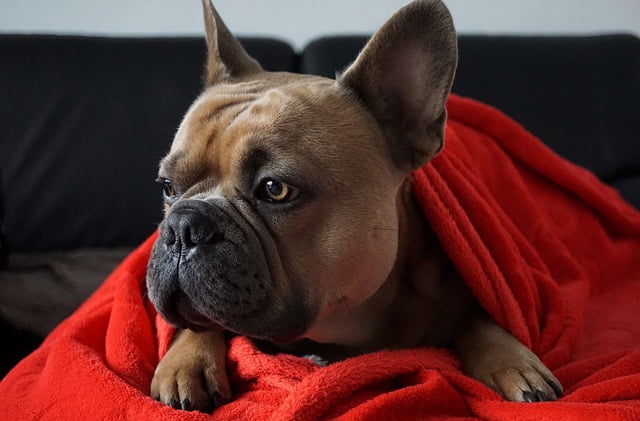If a dog tastes blood will it attack again? (2024)
The question of whether a dog will attack again if it tastes blood is something I have seen many people ask these days. Although many sources have tried their best to refute this unverified myth, but I can see that there are still some uninformed people who are still holding on to the belief that once a dog tastes blood or attacks a human being or other animal, it will attack again in the future.
So, let’s look at some of the frequently asked questions concerning a dog’s aggressive behavior, including the concern about whether a dog that has tasted blood before can still attack again.
If a dog tastes blood will it attack again?
First of all, there is no scientific evidence to support this claim. So, the answer is no; if a dog has tasted blood, it does not in any way mean that the dog will attack again. Dogs are not bed bugs, so I don’t know what made some people think that any dog that has tasted blood is likely to attack again. Don’t let what you see in movies and TV shows cloud your sense of reasoning.
I have personally reviewed a study published in the Journal of the American Veterinary Medical Association, and I couldn’t find any correlation between dogs who had tasted blood and dogs who were more likely to attack.
The study looked at data from over 2,000 dogs and found that there was no difference in the risk of aggression between dogs who had tasted blood and dogs who had not. The study also found that the most common reasons for dog attacks were fear, pain, and territorial aggression.
So, what causes dog attacks?
There are many factors that can cause a dog to attack, including:
- Fear or anxiety: Dogs may attack if they feel threatened or scared, not because they have tasted blood before. This can happen if they are surprised, if they are in a new or unfamiliar environment, or if they are around people or animals they don’t know.
- Pain: Dogs may attack if they are in pain. This can happen if they are injured, if they are sick, or if they are undergoing a medical procedure.
- Territorial aggression: Dogs may attack to protect their territory, such as their home, their food, or their toys.
- Resource guarding: Dogs may attack to protect resources they value, such as food, toys, or attention.
What happens if a dog eats blood?
The short answer is that nothing bad will happen to your dog if they eat blood. I don’t know if you know this, but dogs are carnivorous, which means blood is a natural part of their diet. Their bodies are designed to digest meat and blood, so there’s no way blood can make them aggressive.
Is it bad if my dog tastes blood?
No, it is not bad if your dog tastes blood. Dogs often lick their wounds, which may seem gross to humans. However, this is a natural behavior that helps to clean and disinfect the wound. Saliva contains enzymes that have antiseptic properties, which can help prevent infection.
In some cases, excessive licking can be a sign of a problem. For example, if the wound is painful or itchy, the dog may lick it excessively to relieve the discomfort. Excessive licking can also lead to further damage to the wound and may even cause the dog to develop an aversion to its own wound.
What happens if my dog licks other dogs’ blood?
If you don’t know the health condition of the other dog, there are a few things that could happen if your dog licks other dogs’ blood. First, the dog could ingest bacteria from the blood. This could lead to an infection, such as a bacterial skin infection or a urinary tract infection. Second, the dog could become a carrier of a disease, such as rabies or parvovirus. This means that the dog could spread the disease to other dogs or people.
Why do dogs lick their owners blood?
Dogs are pack animals, and they lick each other’s wounds as a way to show care and concern. When a dog licks the owner’s blood, it may be trying to do the same thing. It may be trying to show that it loves and cares for you and that it wants to help you heal.
Licking at the owner’s blood can also be a sign of excitement or anxiety. If your dog is licking your blood because it is excited, it may be because it is happy to see you or because it is anxious about something.
However, I advise you to try as much as you can to discourage your dog from licking human blood. This is because the saliva from the dog may contain harmful bacteria that can cause infections. If your dog licks a cut or wound, you should wash the area immediately with soap and water and apply a bandage.
Read also>>
- Can I Get Giardia From My Dog Licking Me?
- Why Do Dogs Lick Their Paws Before Bed?
- Why Does My Dog Chew His Leg Until It Bleeds?
How to prevent aggression in dogs
Aggression in dogs is a serious problem that can have a negative impact on both the dog and its owner. There are many causes of aggression, including fear, pain, and dominance. However, there are also many things that can be done to prevent aggression in dogs, such as socializing your dog early, exercising, and receiving positive reinforcement training. So, let’s discuss what to do if your dog is already aggressive.
Be aware of your dog’s body language
The first step you need to take to prevent your dog’s aggression is to understand your dog’s body language. This is because dogs communicate through body language, and it is important to be able to read these signals. Here are some signs that your dog is feeling anxious or threatened, including:
- Ears back
- Tail tucked between legs
- Lips curled back
- Teeth bared
- Growling or barking
If you see your dog exhibiting any of these signs, it is important to remove them from the situation immediately. This could mean taking them to a different room or simply walking away.
Socialize your dog early and often
Socialization is the process of exposing your dog to different people, places, and things. This helps them learn to be comfortable in a variety of situations and less likely to become aggressive out of fear or anxiety.
The best time to start socializing with your dog is when it is a puppy. You can start by taking it to puppy classes or simply introducing it to new people and animals in a safe and controlled environment.
Provide plenty of exercise and mental stimulation
We often hear people say that “a tired dog is a happy dog”, and a well-rounded pup is less likely to become fixated on one particular thing (like the taste of blood). So, you need to make sure to give your dog plenty of exercise every day and provide it with plenty of toys and activities to keep its mind occupied.
Use positive reinforcement training
Positive reinforcement training is a method of training that rewards your dog for good behavior. This is the most effective way to train your dog to stop licking blood, and it is also the least likely to make them aggressive.
When using positive reinforcement training, be sure to reward your dog immediately after they do something good. This will help them associate the good behavior with the reward, and they will be more likely to repeat it in the future. You may need to check out how bubble theory dog training works.
Never punish your dog for being aggressive
Punishment can make aggression worse. Instead, focus on rewarding your dog for good behavior and ignoring or redirecting bad behavior.
If your dog is already aggressive, it is important to seek professional help from a certified dog trainer or behaviorist. They can help you identify the triggers for your dog’s aggression and develop a training plan to help you manage it.
Related articles:
- Can you trust a dog after it bites?
- Are Brindle dogs Aggressive? Why Are They Unpopular?
- Are Chow Chow Dogs Dangerous? Don’t Miss This!
Frequently asked questions on if a dog tastes blood, will it attack again?
What happens when a pitbull tastes blood?
The myth that a pitbull becomes more aggressive after tasting blood is just that – a myth. There is no scientific evidence to support this claim. Dogs of all breeds may bite if they are feeling threatened, scared, or in pain. The taste of blood does not make them more likely to bite.
What should I do if my dog bites someone?
If your dog bites someone, it is important to seek professional help immediately. A dog bite can be serious, and it is important to get the proper treatment. You should also report the bite to your local animal control agency.
Can training prevent a dog from becoming aggressive after tasting blood?
Training plays a significant role in shaping a dog’s behavior. Proper training can help a dog learn appropriate responses to various stimuli, including the taste of blood. By using positive reinforcement techniques, you can redirect your dog’s attention and encourage desired behavior.
My dog tasted blood once and seemed agitated. Should I be concerned about future aggression?
One instance of a dog tasting blood and showing agitation doesn’t necessarily predict future aggression. Dogs can react differently to new experiences, and their response to blood may vary based on the circumstances. To ensure a positive outcome, provide proper training and socialization, and monitor your dog’s behavior closely.
That’s it about the question, “If a dog tastes blood, will it attack again?” I hope you have been able to get some points on this topic. Share the article on your social media platforms.



